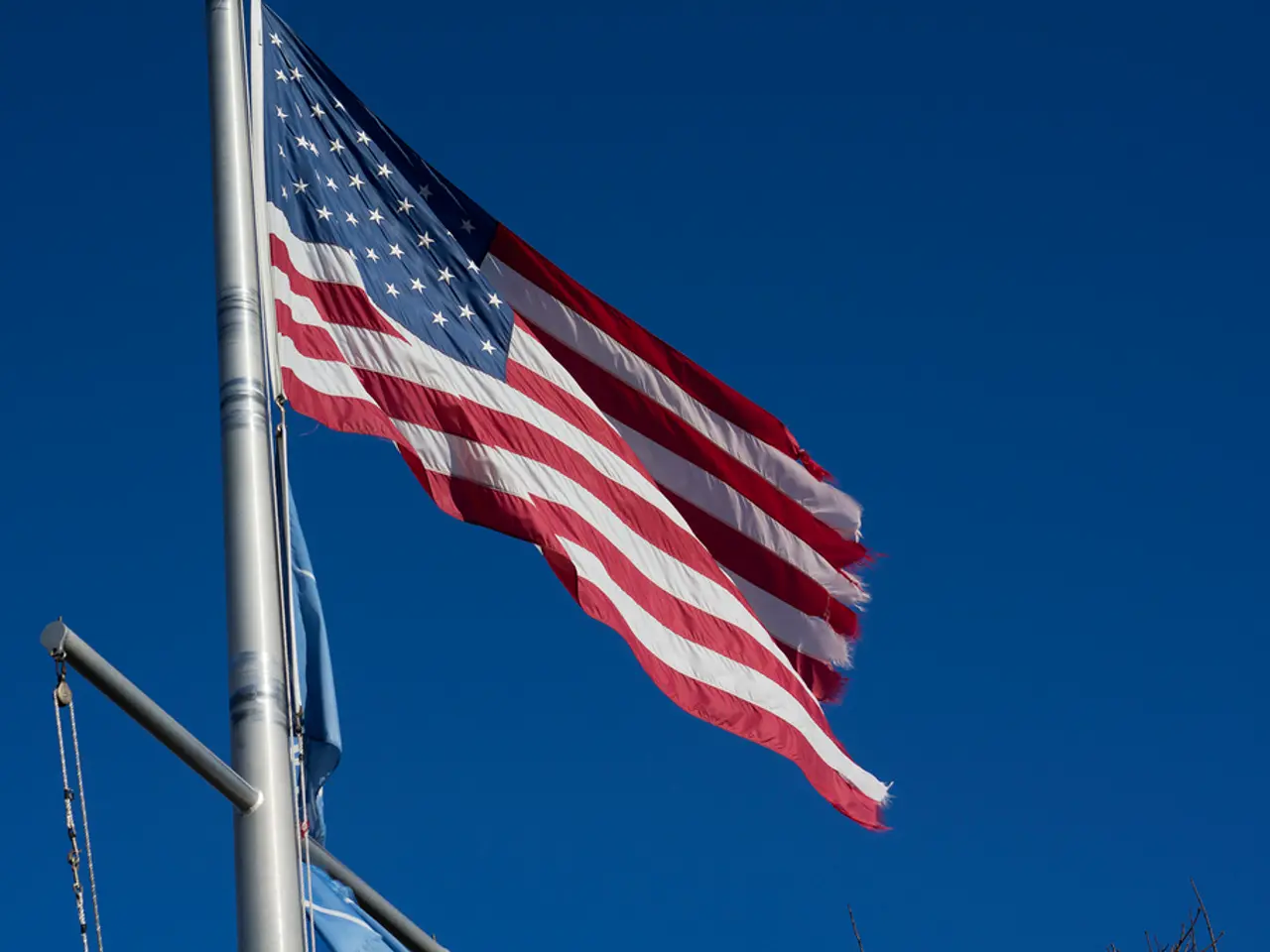America's Fragmentation: Cultural Diversity Threatens to Eliminate Unification
In recent times, the immigration debate in the United States has been highly polarized, with criticism of ICE (Immigration and Customs Enforcement) from progressive politicians, some of whom are either immigrants or children of immigrants.
One such politician is Ilhan Omar, a U.S. Representative, who, along with Salud Carbajal and Shri Thanedar, has been criticized for demonizing ICE and advocating for open borders. Omar, born in Somalia, and Carbajal, born in Mexico, have notably voiced progressive immigration policies. However, specific names directly linked to such criticism in recent times are not explicit in the provided data.
In some communities, this debate has taken a visible form, with residents waving Mexican flags in defiance of federal immigration enforcement. Meanwhile, in Fort Bend County, Texas, a 90-foot statue of a Hindu deity now towers over the landscape, reflecting the diversity of the community.
Last week, the Dearborn Heights Police Department in Michigan unveiled an "optional" patch featuring Arabic and English text for their uniforms, a move met with swift backlash and quickly withdrawn. This incident is part of a larger national trend of growing ethnic enclaves in America.
Deep-pocketed Islamic groups are working on plans to build EPIC City, a proposed Muslim-centered community designed to operate like a nation within a nation in Texas. These developments are the tangible results of the left's decades-long push for "multiculturalism," which has led to a deep erosion of a shared American identity.
Plato, in "The Republic," warned that diversity and freedoms in a democracy can carry within them the seeds of collapse due to social fragmentation and moral decay. This warning seems to resonate today, as high school graduations are now conducted entirely in Spanish in some places, and city governments fly Palestinian flags above their halls in some cities.
The mass influx of legal and illegal immigrants over the past few decades poses significant long-term challenges to the cultural well-being of the United States. Immigrants who settle in the United States are often immersed in a negative political culture that portrays America as evil, illegitimate, and founded on stolen land.
Garett Jones, an economist, posits in his book "The Culture Transplant" that immigrants bring distinct values and behaviors from their places of origin, passing them down to their descendants. This cultural erosion, combined with a negative political narrative, is a recipe for national suicide, according to some critics.
Professor Patrick Deneen, in his book Why Liberalism Failed, stated that the celebration of every culture without a dominant, distinctly "American" culture leads to no culture at all. President Theodore Roosevelt championed Americanism as a way to unify the United States, disapproving of the idea of "hyphenated Americans" who prioritize their ethnic or ancestral backgrounds over their American nationality.
Unless immigration is seriously constrained and reversed, assimilation will no longer be possible as each new generation becomes further divorced from America's history, traditions, and values. The perceived benefits of "multiculturalism" are shallow distractions from deeper cultural realities such as religion, beliefs on childrearing, views on morality and education, enduring values, the meaning of order, and the role class plays in a society.
Adam Johnston, a writer whose work has been featured in The Federalist, The Blaze, and the Daily Caller, and the creator of the Substack publication "Conquest Theory," has been vocal about these issues. His work often explores the cultural and political implications of immigration and the erosion of American identity.
In conclusion, the immigration debate in the United States is a complex issue with far-reaching consequences. While diversity can enrich a nation, it is crucial to balance this with a shared national identity that unites us all. The future of America's cultural fabric may depend on it.
Read also:
- United States tariffs pose a threat to India, necessitating the recruitment of adept negotiators or strategists, similar to those who had influenced Trump's decisions.
- Weekly happenings in the German Federal Parliament (Bundestag)
- Southwest region's most popular posts, accompanied by an inquiry:
- Discussion between Putin and Trump in Alaska could potentially overshadow Ukraine's concerns







